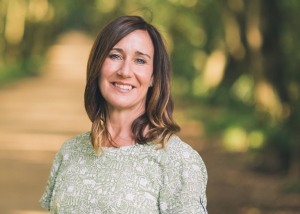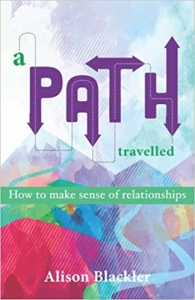Doubt and Fear – Living with Uncertainty
I have an Auntie who at the age of 94 remains so amazingly positive. She has a natural habit of positivity that will not allow anything to get her down. She genuinely sees the things that happen to her as lessons for her to learn and listening to her she has certainly been tested in her life. She has a very strong faith that certainly underpins her attitudes in life. She has the positive habit.
Doubt and fear are both forms of anxiety and worry. We know that worrying is a habit as is being happy. If you are a worrier, or if you are happy, then you were not born like it, where did you learn it? These like all habits are the results of consistent persistent practice over time. Most habits are learned at an early age through observation. We observe behaviours, usually from our parents or siblings and then we practise them and make them our own.
What you feed grows and what you starve dies
Habits can be either cognitive or affective, they are what we think or what we feel. Some psychology suggests that we learn the thinking part first and that leads to the negative feelings of worry. Others would suggest that the feelings lead to the negative thoughts. For me me it can be either, though it is usually a mixture of both.
Sometimes we just feel lousy, anxious or concerned but we don’t know what about. Carl Jung described this as ‘something within us yet outside of our control’. When we just feel bad we can search for a reason and attach a negative thought process to it that makes sense of it. Once we have attached the thought to that feeling they are forever connected so that when we feel it we think it and when we think it we feel it.
Mindfulness allows you to observe doubt and worry and not take it on board
Odd as it may seem we can make anxious associations with the strangest of things it may be a banana or the colour blue, a sound, smell or the tone of someone’s voice. Once we have linked thoughts and feelings together they have a symbiotic relationship that is there forever unless until we wake up to what we are doing and uncouple them.
Mindful practise helps us disconnect our negative links
The first step in developing mindfulness to overcome worrying is to become the observer of yourself, so that ‘I’ can observe ‘me’ thinking, feeling or doing. When we observe we can begin to see the distortions of our thinking feeling and doing that are creating our anxiety, worry, and stress. Often these are unconscious distortions that, through mindfulness, can become conscious and then we can deal with them.
So, first step is learn to observe your distortions…
Common Distortions
ref: http://www.helpguide.org/mental/anxiety_self_help.htm (Thanks for the site guys, a great resource)
All-or-nothing thinking – black-or-white – Life or death. Where are always the shades of grey? Life is never black and white, there will always be a compromise, a third point of view, another way of doing it. It is only by standing back and observing our thinking and feeling that we can move beyond this fixation. Or we can ask other people for their perspective and gain further insight.
Overgeneralisation – “it will always be like this…I’ll never be able to…it always happens to me…” I call this scripting. The habit of thinking this way leads to repeated behaviours. Life becomes a done deal. As soon as I make these statements I am ensuring that they will come true and that my life will be forever blighted. If I wake in the morning with the idea “Oh no not again”, guess what kind of day I am about to have.
Negative focus – The magic of our perception is that we finely tune it so that we only see what we expect to see. This can be the glass half full or half empty. A clean car, with a patch of dirt, can be seen as filthy, a good person who make a simple mistake can be seen as bad and so on. When you tread in a soggy cow pat do you see that as a good opportunity to grow or do you get angry and beat yourself up? When we focus positively all and every experience teaches us about ourself and life. When life is faced positively there is no negative focus.
We don’t have problems we have learning opportunities
Discount the positive – This is magical because when we discount the positive we ensure that nothing will ever be any good. We either come up with reasons why positive events don’t count. “I did well, but that was just dumb luck.” or ” I hate it when good things happen because that means that something negative is just around the corner”. This is the time to stand back, reframe your thoughts and feeling create a new script for the situation and say it out loud so that your ears can hear it. “I love when good things happen. It means there is more good coming my way”.
Jumping to conclusions – Even when what is happening is plainly positive we can make negative interpretations without any actual evidence and without even realising that we are doing it. We can act like a mind reader, “I can tell she/he secretly hates me.” Or like a fortune teller, “I just know something terrible is going to happen.” “I just know we are going to miss the plane.” Ask yourself the question why? Why should these bad things happen to you and not other people? Most importantly what evidence do you have of things working well? Observe the positive and repeat it to yourself as positive reinforcement.
Catastrophizing – It is easy to make a drama out of a crisis. Expecting the worst-case scenario to happen. “The pilot said we’re in for some turbulence. The plane’s going to crash!” A classic is a medical diagnosis when we convince ourself of the worst outcome. In life difficult things will always happen. However, evolution and equipped us with some pretty good creative skills that enable us to solve problems. If you can make a cup of tea you are a creative genius and, if you make a cup of tea you can solve a problem.
Emotional reasoning – This is when the feeling clearly comes before the thought and we seek to make a connection and association between the feeling and the thought. Just like believing that the way we feel reflects reality. “I feel frightened right now. That must mean I’m in real physical danger.” It might even be “she just told I am a bad person therefore it must be true.” Just because you feel something or someone says something it does not mean that it is true. Being able to observe your feelings and thought associations that you have made and questioning them rather than accepting them can lead to new levels of understanding and self development.
‘Should’s and should-nots’ – In my consulting room there are certain words that are banned. These are ‘ought, should, must and can’t, together with ought not, should not, must not’. Holding yourself to a strict list of what you should and shouldn’t do is like beating yourself up. Often these things are related to what other people want or need and may have little to do with meeting our own needs. It is good to look at why you believe these things, what is going on? Where did you learn to think that way? Could have been a parent or sibling? This is a good time to look at reframing your thoughts and feelings, update them so that they can now serve you better.
Labelling – I resist giving people a diagnoses. A diagnosis is a label and once we become labelled we become limited by that label, both in our owns eyes and in the eyes of others. My father labelled me as an ‘idiot’ and for many years I believed him. Later, in therapy, I realised that this was his issue and not mine and I relabelled myself positively, “I am clever and can do things”. Labelling yourself based on mistakes and perceived shortcomings such as “I’m a failure; an idiot; a loser,” just creates negative scripts that you will play out in everyday life.
Personalisation – This may also be described as taking other people’s stuff onboard so that it becomes ‘my’ issue when it is not. It is when we assume responsibility for things that are outside of our control. “It’s my fault my son had an accident. I should have warned him to drive carefully in the rain.” “its my fault he got lung cancer I should have stopped him smoking.” We can not live other people’s lives like they are our own.
Worry and Doubt
Worry and doubt comes in many shapes and sizes. Importantly all of the versions described above are all habitual behaviours and like all habits they can be changed.
If you follow the Live In the Present course as set out in our blogs and podcasts you will soon realise that to change a habit permanently normally involves a ninety day programme of consistent and persistent determination. All habits can be changed.
When you suffer from worry or doubt it is a form of obsessive compulsive disorder or OCD. Rumination on anything will make it bigger and bigger. It follows that rumination on positive things will lead to positive feelings and happiness. So…
don’t worry, don’t doubt, be positive and be happy
Take care
Sean x


 Many of challenges can be useful to help us grow and develop. If everything were plain sailing, our personal journey would probably be limited. While we clearly need some time of stability, we learn the most from challenging situations. The trick is to see these as a chance to change rather than as a negative experience. Relationships take work and commitment, though focusing on yourself first is critical. This understanding gives peace and clarity.
Many of challenges can be useful to help us grow and develop. If everything were plain sailing, our personal journey would probably be limited. While we clearly need some time of stability, we learn the most from challenging situations. The trick is to see these as a chance to change rather than as a negative experience. Relationships take work and commitment, though focusing on yourself first is critical. This understanding gives peace and clarity.